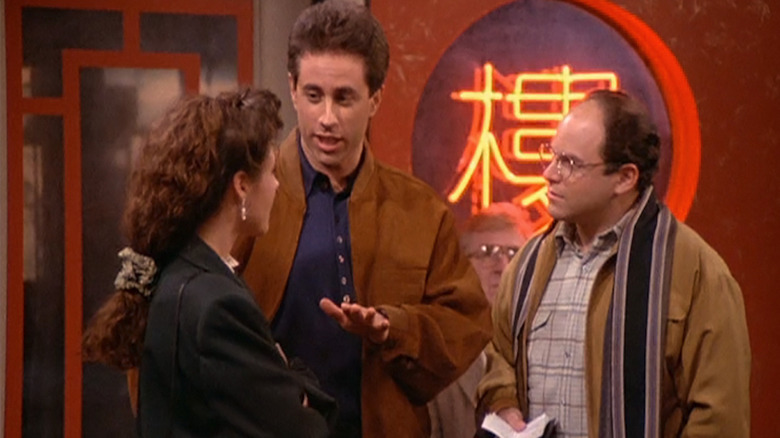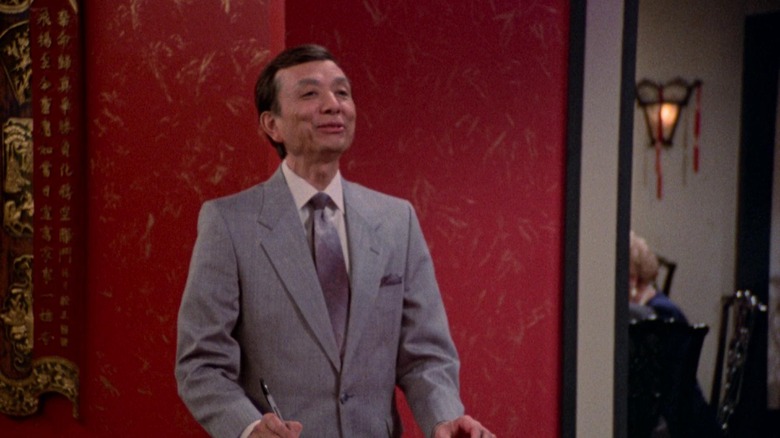Larry David Thinks NBC Fumbled The Release Of This Seinfeld Episode
"Seinfeld" might've gone out on top of the Nielsen ratings in the spring of 1998, but it took the show five seasons to crack the top ten, in part because its network, NBC, couldn't make heads or tails of the series.
Jerry Seinfeld, who co-created the show with his stand-up comedy pal Larry David, was anything but edgy. He was an observational comic with a gently absurdist bent, pointing out all of humanity's little quirks and peccadilloes. He stopped by "The Tonight Show Starring Johnny Carson" frequently, and gradually became a mainstream-friendly stand-out amid the crowded 1980s stand-up scene.
So why did NBC struggle to identify its ratings-topping potential?
Because "Seinfeld" was edgy, mean even, and its serrated comedy was primarily the invention of David, whose shamelessness permeated the character of George Costanza (Jason Alexander). All four major characters on Seinfeld — Jerry, Elaine, George, and Kramer — were deeply selfish and generally unpleasant people. They were our close-to-worst selves — and we recognized it and loved it as a form catharsis for our inner a**hole.
Network sitcoms were supposed to have maybe one jerk among their ensemble, which clearly rattled NBC, especially when it came to what many consider the series' first classic episode, "The Chinese Restaurant."
The Seinfeld episode The Chinese Restaurant was almost buried
In a 2014 interview with Rolling Stone, Larry David was asked about "The Chinese Restaurant," in which the gang (minus Kramer) wait an excruciatingly long time for a table at the aforementioned establishment, as the show's "turn into true greatness." He responded by noting NBC's reticence to air the episode. Per David:
"NBC didn't want to run that show, and they changed the order that it was written in. I think it was supposed to go much earlier, but they delayed it. They didn't like it. In fact, when I was called in for a meeting after that season, they said that they didn't want to have any more shows like that one. And of course, the very next season, we gave them 'The Parking Garage.' [Laughs] So, so much for that."
"The Chinese Restaurant" doesn't have a controversial bone in its body, so why did the network find it so off-putting? For starters, the setting and predicament were likely foreign to them. C-suite elites don't wait for tables, so they don't know what it's like to go hungry for a whole 20 minutes — to the extent that, like Elaine, they'd offer $50 to a diner for a solitary eggroll. Nor could they relate to George's very specific desire to invite a romantic companion to dinner in order to make up for having to take a break from sex to use her bathroom. Being an over-compensated suit means never having to say you're sorry.
"The Chinese Restaurant" aired near the end of the second season, and the critical support it engendered helped the series survive a couple of seasons where it was a middle-of-the-pack Nielsen show. It remains the platonic ideal of a "Seinfeld" episode (even if the season as a whole was one of its weakest).

